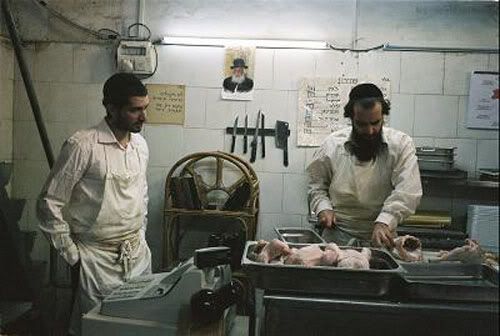HOME
This is the blog of Ian Rosales Casocot. Filipino writer. Sometime academic. Former backpacker. Twink bait. Hamster lover.
Interested in What I Create?
Bibliography

The Great Little Hunter
Pinspired Philippines, 2022

The Boy The Girl
The Rat The Rabbit
and the Last Magic Days
Chapbook, 2018

Republic of Carnage:
Three Horror Stories
For the Way We Live Now
Chapbook, 2018

Bamboo Girls:
Stories and Poems
From a Forgotten Life
Ateneo de Naga University Press, 2018

Don't Tell Anyone:
Literary Smut
With Shakira Andrea Sison
Pride Press / Anvil Publishing, 2017

Cupful of Anger,
Bottle Full of Smoke:
The Stories of
Jose V. Montebon Jr.
Silliman Writers Series, 2017

First Sight of Snow
and Other Stories
Encounters Chapbook Series
Et Al Books, 2014

Celebration: An Anthology to Commemorate the 50th Anniversary of the Silliman University National Writers Workshop
Sands and Coral, 2011-2013
Silliman University, 2013

Handulantaw: Celebrating 50 Years of Culture and the Arts in Silliman
Tao Foundation and Silliman University Cultural Affairs Committee, 2013

Inday Goes About Her Day
Locsin Books, 2012

Beautiful Accidents: Stories
University of the Philippines Press, 2011

Heartbreak & Magic: Stories of Fantasy and Horror
Anvil, 2011

Old Movies and Other Stories
National Commission for Culture
and the Arts, 2006

FutureShock Prose: An Anthology of Young Writers and New Literatures
Sands and Coral, 2003
Nominated for Best Anthology
2004 National Book Awards
Follow the Spy
Recent Crumbs
Blogs I Read
© 2002-2021
IAN ROSALES CASOCOT
Thursday, November 04, 2010
 3:23 AM |
A Quiet Man's Disquiet
3:23 AM |
A Quiet Man's Disquiet

Restraint is the most blessed thing in Haim Tabakman's debut film
Einayim Pkuhot [
Eyes Wide Open, 2009]. You can see it in the way he directs the flow of movement, sound, and images in this brave Israeli film about a tzaddik ("a righteous man"), a family man named Aaron who one day, amidst a downpour, takes in a stranger named Ezri and hires him to help run the butcher shop he inherits from his newly-deceased father. At first, this hesitant invitation is doled out of charity and compassion, something that comes naturally to this quiet man who has been, for years and years, seemingly content in the trappings of his life in a conservative Hassidic Jewish community in Jerusalem. But friendship with Ezri deepens into something else, and the community starts to rally, in subtle mechanisms as well as outright ostracism, to expunge what they feel is "evil" invading their neighborhood. This is the stuff of fireworks, but Tabakman chooses his path well: he tells the story quietly, aided with just the right kind of mood music to assert the melancholy air of Aaron's life, which is now beginning to lighten up a bit as he finds a strange awakening he welcomes, despite all looming threats. "I feel alive. I need him," he tells the rabbi who comes to advise him for one last time before the neighborhood's morality brigade, composed mostly of young Torah students, comes back to inflict serious harm on his business or his person. That Zohar Strauss, who plays Aaron, says this without sentimentality is a hallmark of the film's beautiful restraint, which Ran Danker, who plays Ezri, also inhabits in his downplaying of his character's youthful virility, his rebel status. There is so much about this film that I can take to, the repressive mechanisms of closed-off communities, the ambivalence of desire, the need to understand the people we love despite the pain that can come with that understanding, the struggles of holding on to tradition and what the tenets of our faiths tell us to do against what feels right and true within our very souls. It is a quiet, nuanced film that many people will not get, most probably. That will be the sad reality for these people of such shallow understanding of human nature.
Labels: film, queer
[1] This is Where You Bite the Sandwich
GO TO OLDER POSTS
GO TO NEWER POSTS

















 3:23 AM |
A Quiet Man's Disquiet
3:23 AM |
A Quiet Man's Disquiet
